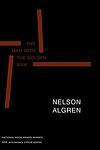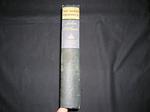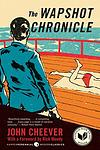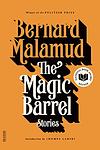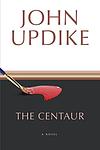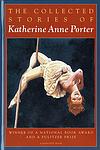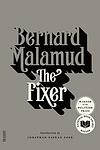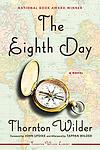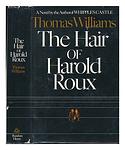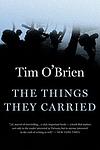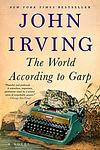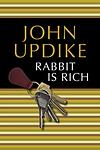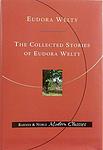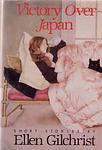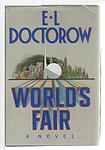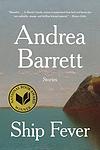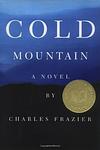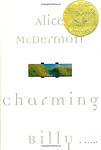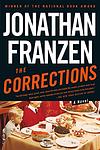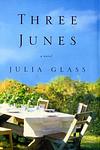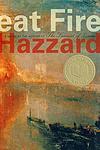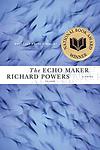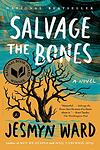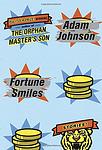National Book Award - Fiction
This is one of the 284 lists we use to generate our main The Greatest Books list.
-
The Man with the Golden Arm by Nelson Algren
"The Man with the Golden Arm" is a novel that tells the story of Frankie Machine, a talented card dealer and drummer in post-World War II Chicago who becomes addicted to morphine. The narrative vividly portrays his descent into addiction and his struggles with poverty and crime, while also exploring themes of despair, corruption, and redemption. The book is notable for its gritty depiction of life in the urban underbelly and its nuanced characterizations.
-
The Collected Stories of William Faulkner by William Faulkner
This collection of short stories encompasses a wide range of themes and settings, all penned by a celebrated American author. The stories, set primarily in the American South, explore complex human relationships, societal norms, and the human condition through a variety of characters and narratives. The author's distinctive narrative style, marked by intricate storytelling and deep psychological insights, is evident throughout the collection, which includes some of his most famous and critically acclaimed short works.
-
From Here to Eternity by James Jones
This novel is a gritty and realistic portrayal of military life in the days leading up to the bombing of Pearl Harbor. The story follows the lives of several soldiers stationed in Hawaii, exploring themes such as power struggles, individualism versus conformity, and the often harsh realities of military life. The narrative is marked by its frank depiction of sexuality, violence, and the stark contrast between the idyllic Hawaiian setting and the brutal realities of war.
-
Invisible Man by Ralph Ellison
The novel is a poignant exploration of a young African-American man's journey through life, where he grapples with issues of race, identity, and individuality in mid-20th-century America. The protagonist, who remains unnamed throughout the story, considers himself socially invisible due to his race. The narrative follows his experiences from the South to the North, from being a student to a worker, and his involvement in the Brotherhood, a political organization. The book is a profound critique of societal norms and racial prejudice, highlighting the protagonist's struggle to assert his identity in a world that refuses to see him.
-
The Adventures of Augie March by Saul Bellow
"The Adventures of Augie March" is a novel set in Chicago during the Great Depression. The story follows the life of Augie March, a poor but spirited boy growing up in a broken home, as he navigates his way through life. The narrative explores his various jobs, relationships, and adventures, as he constantly seeks his identity and place in the world. His journey is marked by a series of encounters with different people and experiences, each shaping him in unique ways.
-
A Fable by William Faulkner
This novel is a World War I allegory where a Christ-like figure emerges within a French regiment, sparking a mutiny. The figure, a corporal, persuades his squadron to not attack in the bloody conflict, leading to their court-martial and execution. The narrative explores themes of war, morality, and the human spirit, with the corporal's actions causing a ripple effect, impacting the lives of soldiers, officers, and even a Jesuit priest.
-
Ten North Frederick by John O'Hara
"Ten North Frederick" is a novel that explores the life of Joe Chapin, a wealthy, ambitious lawyer living in Gibbsville, Pennsylvania, during the early 20th century. The story delves into his personal and professional life, including his troubled marriage, his strained relationship with his children, his political aspirations, and his secret love affairs. The narrative is an exploration of social class, ambition, and the pursuit of the American Dream, revealing the emptiness and dissatisfaction that can often lie beneath a seemingly successful and enviable life.
-
The Field of Vision by Wright Morris
"The Field of Vision" is a novel that focuses on a group of American tourists who travel to Mexico to witness a bullfight. The narrative unfolds through the eyes of one of the tourists, who reflects on his personal life and relationships. The story is not linear but rather a series of flashbacks and introspections, creating a complex and layered narrative. The author explores themes of perception, memory, and the human condition through the protagonist's introspective journey.
-
The Wapshot Chronicle by John Cheever
"The Wapshot Chronicle" is a novel that explores the lives of the eccentric Wapshot family, who live in a quaint New England village. The story primarily focuses on the experiences of Leander Wapshot, the patriarch, and his two sons, Moses and Coverly, as they navigate through life's challenges. While Leander grapples with his advancing age and nostalgia, his sons are sent to find their own paths, dealing with their sexual identities, love, and their place in the world. This narrative is a blend of humor, tragedy, and family dynamics, showcasing the complexities of life and human nature.
-
The Magic Barrel by Bernard Malamud
"The Magic Barrel" is a collection of thirteen short stories that explore themes of love, suffering, and redemption set against the backdrop of post-World War II New York City. The stories follow a range of characters, from a lonely rabbinical student seeking a wife to a poor grocery store owner struggling with his faith. The narratives provide a poignant examination of human relationships, the immigrant experience, and the struggle to find meaning in a difficult world.
-
Goodbye, Columbus by Philip Roth
This novel explores the story of Neil Klugman and Brenda Patimkin, two young Jewish people from different social classes, who embark on a summer romance in 1950s New Jersey. The novel delves into their relationship dynamics, contrasting their backgrounds and dealing with themes of social class, materialism, and the American Dream. The book also includes five short stories, each exploring different aspects of post-war American Jewish life.
-
The Waters of Kronos by Conrad Richter
"The Waters of Kronos" is a novel that explores the themes of time, memory, and the loss of innocence. The story follows an elderly man who returns to his childhood hometown, only to find it submerged under a reservoir. As he navigates the physical and metaphorical waters, he embarks on a journey through his past, reliving key moments of his life and confronting the ghosts of his past. The novel is a poignant exploration of the human condition, the inexorable passage of time, and the enduring power of memory.
-
The Moviegoer by Walker Percy
The protagonist, a young stockbroker in New Orleans, is alienated, detached, and finds more reality in movies and books than in his everyday life. He searches for meaning in life, often through his relationships with his aunt and his cousin, while also dealing with existential dread and the impending reality of turning 30. This exploration of alienation and search for identity in the modern world won the National Book Award for Fiction.
-
Morte D'Urban by J. F. Powers
"Morte D'Urban" is a novel that follows the story of Father Urban, a charismatic yet ambitious Catholic priest in the mid-20th century Midwest. Despite his dreams of building a golf course monastery and his struggles with the conservative and bureaucratic church hierarchy, Father Urban remains committed to his faith and his calling. The novel explores themes of faith, ambition, and the tension between modernity and tradition within the Catholic Church.
-
The Centaur by John Updike
The novel follows the life of George Caldwell, a high school teacher in a small town in Pennsylvania, who is struggling with feelings of disappointment and failure. He is constantly compared to his father, a mythological centaur, symbolizing the conflict between the mundane and the extraordinary. The narrative alternates between the modern world and the mythological realm, exploring themes of identity, disillusionment, and the struggle between the human and the divine.
-
Herzog by Saul Bellow
The novel centers around Moses Herzog, a middle-aged, intelligent yet distressed man who is going through a mid-life crisis. After his second marriage fails, he falls into a state of emotional turmoil and begins writing letters to friends, family, and even famous figures, expressing his philosophical thoughts and personal feelings. His journey of self-discovery and understanding forms the crux of the story. It's a profound exploration of a man's struggle with the complexities of life and his quest for meaning.
-
The Collected Stories of Katherine Anne Porter by Katherine Anne Porter
This collection of stories showcases the author's talent for creating vivid, richly detailed characters and settings. The stories are diverse in theme and setting, ranging from the rural American South to post-World War I Europe. Through her complex characters and nuanced storytelling, the author explores themes of love, loss, and the human struggle for personal freedom and authenticity. The collection includes both her short stories and her longer, more complex novellas, providing a comprehensive overview of her literary achievements.
-
The Fixer by Bernard Malamud
"The Fixer" is a historical novel set in Tsarist Russia that follows the story of a Jewish handyman, or "fixer", who is unjustly imprisoned after being accused of ritual murder. The narrative explores his struggle for dignity, survival, and ultimately freedom against the backdrop of a deeply anti-Semitic society. The protagonist's ordeal becomes a symbol for the broader persecution of Jews during this era, offering a profound commentary on human rights, faith, and resilience.
-
The Eighth Day by Thornton Wilder
This novel explores the aftermath of a mine explosion in a small Midwestern town at the turn of the 20th century, which leads to the wrongful conviction of a man for murder. Saved from the gallows by a mysterious stranger, the man flees to South America while his wife and children are left to navigate the social and financial fallout in their community. The narrative delves into themes of justice, faith, and the randomness of destiny, all set against the backdrop of America's industrial revolution.
-
Steps by Jerzy Kosinski
"Steps" is a series of loosely connected, episodic short stories that portray the life of a man who, as a child, survived World War II in Eastern Europe, and who later immigrates to the United States. The narrative is filled with scenes of violence, sexual perversion, and alienation, reflecting the protagonist's experiences in a world marked by chaos, brutality, and moral ambiguity. The protagonist's perspective shifts throughout the book, offering a complex, fragmented, and often disturbing view of human nature and society.
-
Them by Joyce Carol Oates
"Them" is a novel that chronicles the lives of the Wendall family, a lower-class family living in Detroit, over the course of three decades. The story, told from the perspective of three main characters, explores their struggles with poverty, violence, and a constant desire for a better life. It also delves into the societal issues of the time, including racial tensions and the disillusionment of the American Dream. The narrative is a gritty, realistic depiction of the hardships faced by many families in urban America during the mid-20th century.
-
Mr. Sammler's Planet by Saul Bellow
"Mr. Sammler's Planet" is a novel that centers around Artur Sammler, a Holocaust survivor living in New York City. Sammler, an intellectual, attempts to reconcile his experiences during the war with the realities of 1960s America, which he views as a society consumed by materialism and lacking in moral clarity. The novel explores themes of survival, the human condition, and the struggle to maintain dignity and integrity in a world that often seems devoid of both.
-
The Complete Stories of Flannery O'Connor by Flannery O'Connor
This comprehensive collection of short stories showcases the author's exploration of the human condition, particularly in the American South. The stories, known for their dark humor, religious themes, and grotesque characters, delve into the complexities of morality, ethics, and the struggle between good and evil. The author's unique blend of Southern Gothic style and religious allegory creates a vivid portrait of a society grappling with its own contradictions and shortcomings.
-
Chimera by John Barth
"Chimera" is a collection of three novellas that explore and deconstruct traditional narrative forms. Each story reimagines a different myth: the first is a retelling of the Arabian Nights, the second presents a modern interpretation of the myth of Perseus and Andromeda, and the third is a reworking of the story of Bellerophon and the Chimera. Each story is filled with philosophical musings, metafictional devices, and a deep exploration of the nature of storytelling itself.
-
Augustus by John Williams
"Augustus" is a historical novel that provides a comprehensive and vivid account of the life of Rome's first emperor, from his early years as a young and inexperienced politician, to his rise to power and his reign, which brought about the Pax Romana. The book presents a complex and humanized portrayal of Augustus, exploring his relationships, his philosophical reflections, his political strategies, and the challenges he faced in his personal and public life. The narrative is composed of fictional letters, memoirs, and other documents, providing a multi-faceted perspective on this pivotal figure and his era.
-
Gravity's Rainbow by Thomas Pynchon
Set during the end of World War II, the novel follows Tyrone Slothrop, a lieutenant in the U.S. Army, as he tries to uncover the truth behind a mysterious device, the "Schwarzgerät", that the Germans are using in their V-2 rockets. The narrative is complex and multi-layered, filled with a vast array of characters and subplots, all connected by various themes such as paranoia, technology, and the destructive nature of war. The book is known for its encyclopedic nature and its challenging, postmodernist style.
-
A Crown of Feathers and Other Stories by Isaac Bashevis Singer
"A Crown of Feathers and Other Stories" is a collection of short stories that delve into the human condition, often through the lens of Jewish culture and history. The tales are filled with elements of fantasy and folklore, exploring themes such as morality, love, loss, and the struggle between good and evil. The characters grapple with ethical dilemmas, personal identities, and the complexities of relationships, while the narrative style often combines realism with the supernatural, creating a unique blend of the mundane and the mystical.
-
Dog Soldiers by Robert Stone
In this novel, a disillusioned war correspondent, a morally compromised professor, and a woman caught between them become embroiled in a dangerous plot involving heroin smuggling from Vietnam to California. As they navigate the treacherous landscape of addiction, violence, and betrayal, the characters are forced to confront the devastating consequences of their choices. The book explores the dark underbelly of the American dream and the brutal realities of war.
-
The Hair of Harold Roux by Thomas Williams
The novel is a layered narrative that alternates between the protagonist, a writer, working on his novel in 1960s New Hampshire and the story within his novel set in 1930s New England. The protagonist's story explores his relationships with his family, friends, and fellow writers, while the story within the novel follows a young man's journey of self-discovery during the Great Depression. The book won the National Book Award for Fiction in 1975.
-
The Spectator Bird by Wallace Stegner
The novel follows the story of a literary agent, now retired, who lives a quiet life with his wife in California. Their peace is disrupted when an old postcard from a Danish aristocrat arrives, prompting them to revisit their past. The protagonist begins reading from his old journal, recounting their trip to Denmark years ago, where they became entangled in a mysterious and unsettling affair. The novel explores themes of memory, aging, and the choices that shape one's life.
-
Blood Tie by Mary Lee Settle
"Blood Tie" is a novel set in a small Turkish town, where a group of expatriates from America and Europe gather. The story unfolds as their idyllic life is disrupted by political turmoil, leading to a military coup. The book explores themes of cultural clash, political upheaval, and the personal struggles of the diverse characters, revealing the complexities of human nature and the impact of historical events on individual lives.
-
Going After Cacciato by Tim O'Brien
The novel is a surreal exploration of a young infantryman's experience in the Vietnam War. The protagonist and his squad are tasked with chasing down Cacciato, a fellow soldier who has gone AWOL and is attempting to walk from Vietnam to Paris. The narrative is interspersed with flashbacks and hallucinations, blurring the lines between reality and fantasy as the protagonist grapples with the horrors of war, the concept of courage, and the boundaries of sanity.
-
Sophie's Choice by William Styron
Set in post-World War II Brooklyn, this novel follows the story of a young Southern writer who becomes friends with a Jewish scientist and a beautiful Polish Catholic survivor of the Auschwitz concentration camp. The narrative unravels the tragic love triangle between the three characters, with the woman's haunting past and the horrific choice she had to make in the concentration camp serving as the heart of the story. The book delves into themes of survival, guilt, and the struggle to find meaning in the aftermath of atrocities.
-
The World According to Garp by John Irving
The novel follows the life of T.S. Garp, the illegitimate son of a feminist mother, who becomes a writer. Garp's life is filled with unusual experiences and characters, from his unconventional conception to his untimely death. He navigates through a world filled with sexual violence, infidelity, and gender issues, and his life story is punctuated by his own literary creations. His mother's feminist ideals and the tragic events of his life deeply influence his writing and worldview.
-
Plains Song by Wright Morris
"Plains Song" is a novel that explores the lives of three generations of women living in the midwestern plains of America. The story delves into their struggles, joys, and the harsh realities of life in a patriarchal society. It portrays the complexities of family relationships, particularly between mothers and daughters, and the influence of the past on the present. The narrative is a poignant reflection on the passage of time, the impermanence of life, and the enduring nature of the human spirit.
-
The Stories of John Cheever by John Cheever
This collection of short stories provides an intimate look into the lives of individuals living in the American suburbs during the mid-20th century. The narratives often center around themes of love, loss, and the pursuit of the American dream, painting a vivid picture of the human condition. The characters are typically middle-class individuals dealing with personal crises, existential dread, and the often harsh realities of everyday life. The stories are renowned for their ability to capture the essence of post-war America, with all of its beauty, despair, and complexity.
-
Rabbit Is Rich by John Updike
The book follows the life of a former high school basketball star, who is now in his mid-forties and has inherited a Toyota dealership from his father-in-law. He is living a comfortable life with his wife and son in Brewer, Pennsylvania during the late 1970s. The story unfolds as he navigates through his midlife crisis, dealing with his rebellious son, his longing for his old mistress, and his own insecurities and dissatisfaction. The narrative provides a deep dive into the protagonist's thoughts and feelings, offering a detailed examination of middle-class American life during this era.
-
So Long, See You Tomorrow by William Maxwell
The novel revolves around a young boy in Illinois who befriends a new classmate, Cletus, whose father has been murdered. The protagonist becomes obsessed with the murder, imagining the events leading up to the tragedy from the perspectives of the involved parties. The novel explores themes of memory, guilt, and the impact of trauma on childhood friendships.
-
The Color Purple by Alice Walker
Set in the early 20th century, the novel is an epistolary tale of a young African-American woman named Celie, living in the South. She faces constant abuse and hardship, first from her father and then from her husband. The story unfolds through her letters written to God and her sister Nettie, revealing her emotional journey from oppression to self-discovery and independence, aided by her relationships with strong women around her. The narrative explores themes of racism, sexism, domestic violence, and the power of sisterhood and love.
-
The Collected Stories of Eudora Welty by Eudora Welty
This collection of short stories provides an insightful look into the human condition through the lens of Southern American life. The narratives, rich in detail and character development, explore a wide range of themes such as love, loss, race, poverty, and the complexities of human relationships. The stories are deeply rooted in the setting of the Southern United States, bringing to life the unique culture, customs, and dialect of the region. The author's masterful storytelling and evocative prose make each story a vivid and memorable exploration of human nature.
-
Victory Over Japan: A Book of Stories by Ellen Gilchrist
"Victory Over Japan: A Book of Stories" is a collection of short stories that offer a glimpse into the lives of various characters, primarily women, in the South. The stories, set in different time periods, explore themes of love, loss, and the complexities of human relationships. The characters are often flawed, dealing with personal struggles and societal expectations, but their resilience and determination shine through, providing a deep and often humorous insight into the human condition.
-
White Noise by Don DeLillo
The novel is a postmodern exploration of death and consumerism in the United States. It follows a year in the life of Jack Gladney, a professor who has made his name by pioneering the field of Hitler Studies at a small liberal arts college in Middle America. Jack and his fourth wife, Babette, are afraid of death and are obsessed with finding a cure for their fear. Their lives are disrupted by an airborne toxic event, which forces them to confront their mortality and the toxic effects of modern life.
-
World's Fair by E. L. Doctorow
Set in 1930s New York, this novel follows the life of a young boy named Edgar as he navigates through the complexities of family life, school, and the exciting spectacle of the World's Fair. The narrative is a blend of Edgar's memories and his older brother's diary entries, painting a vivid picture of the Depression-era Bronx, the looming war, and the technological wonders of the fair. The boy's experiences and observations reveal the socio-cultural dynamics of the time and the transformative power of the fair, which symbolizes hope and progress amidst the bleakness of the era.
-
Paco's Story by Larry Heinemann
This novel follows the life of Paco Sullivan, the lone survivor of a Vietnam war massacre, as he struggles to reintegrate into civilian life. Haunted by the ghosts of his fallen comrades and burdened by survivor's guilt, Paco grapples with the physical and psychological scars of war while working as a dishwasher in a small Texas town. The narrative explores the harsh realities of post-war trauma and the societal neglect of veterans.
-
Paris Trout by Pete Dexter
"Paris Trout" is a gripping narrative set in a small Georgia town in the 1950s. The story revolves around a local store owner, Paris Trout, who kills a young black girl and injures her mother over a debt dispute. His violent act sends shockwaves through the town and his refusal to accept guilt, along with his lawyer's struggle to defend him, exposes the deep-seated racial and social tensions in the community. The book explores themes of racism, violence, and the moral decay of a society that allows such acts to go unpunished.
-
Spartina by John Casey
The novel follows the life of a Rhode Island fisherman who is struggling to make ends meet and is determined to finish building his boat, Spartina. The protagonist is deeply connected to the sea and the coastal life, but is also frustrated by his poverty and the wealthy summer residents who seem to take over his town. His life becomes even more complicated when he starts an affair with a younger woman, further straining his relationship with his family. The story is a deep exploration of the protagonist's character, his struggles, and his relationship with the sea.
-
Middle Passage by Charles R. Johnson
This novel follows the story of a freed slave and thief, who stows away on a ship to escape his debts and a forced marriage, only to find he has boarded a slave ship bound for Africa. The protagonist's journey takes a turn when the crew revolts, kills the captain, and the ship becomes lost at sea. The book explores themes of identity, freedom, and personal transformation, all set against the grim backdrop of the transatlantic slave trade.
-
Mating by Norman Rush
"Mating" is a novel that follows the story of a female anthropologist who is doing her fieldwork in Botswana. She falls in love with an eccentric and charismatic intellectual who has created a utopian matriarchal village in the Kalahari desert. The narrative explores themes of love, feminism, and idealism as it delves into the complexities of human relationships and societal structures.
-
All the Pretty Horses by Cormac McCarthy
This novel follows the journey of a young Texas cowboy who, after his grandfather's death, ventures into Mexico with his best friend in search of a life of freedom and adventure. Their journey becomes complicated when they are arrested and imprisoned, and the protagonist falls in love with the daughter of a wealthy ranch owner. The book explores themes of love, loss, friendship, and the harsh realities of life.
-
The Shipping News by Annie Proulx
The novel follows the story of a depressed and overweight man who moves with his two daughters to his ancestral home in Newfoundland, Canada, after his unfaithful wife dies in a car accident. There, he begins to rebuild his life, working as a reporter for the local newspaper, The Shipping News, and learning about the harsh realities of the fishing industry. As he delves into his family's history, he begins to find a sense of belonging and a new love. The story explores themes of family, identity, and the power of place.
-
A Frolic of His Own by William Gaddis
The novel explores the complex and often absurd world of American law and litigation. The protagonist is a retired law professor who is embroiled in multiple lawsuits, including one against himself. The narrative is filled with legal documents, depositions, and court transcripts, which serve to critique the convoluted and often nonsensical nature of the legal system. The book also satirizes the American obsession with wealth and property, and the lengths people will go to protect their own interests.
-
Sabbath's Theater by Philip Roth
"Sabbath's Theater" is a darkly humorous and sexually explicit novel about the life of a retired puppeteer, Mickey Sabbath. After the death of his long-time mistress, Sabbath embarks on a journey of self-exploration and reflection, contemplating his past relationships, his career, and his own mortality. The novel is a profound exploration of the human condition, the nature of desire, and the struggle to find meaning in a chaotic and often absurd world.
-
Ship Fever and Other Stories by Andrea Barrett
"Ship Fever and Other Stories" is a collection of seven short stories and a novella, all revolving around the theme of scientific discovery and the human response to it. The stories span across different eras and locations, from 19th-century Canada during a typhus epidemic to contemporary America. The characters, including scientists, explorers, and ordinary people, grapple with the moral and ethical implications of scientific advancements, the pursuit of knowledge, and the intersection of science and human emotion. The novella, which gives the collection its title, focuses on the 1847 typhus epidemic among Irish immigrants in Canada.
-
Cold Mountain by Charles Frazier
"Cold Mountain" is a novel set during the American Civil War, following a wounded Confederate soldier who deserts the army to make a perilous journey back home to his beloved. The narrative alternates between his arduous trek and the struggles of the woman he left behind as she tries to maintain their North Carolina homestead. The novel explores themes of love, survival, and the destructive impact of war on the human spirit.
-
Charming Billy by Alice McDermott
"Charming Billy" is a poignant exploration of love, loss, faith, and the power of stories. The narrative unfolds through the memories of friends and family gathered at a Bronx bar after the funeral of Billy Lynch, a charismatic but troubled man who died of alcoholism. As the mourners share their recollections, the reader learns about Billy's lifelong love for his Irish sweetheart who he believed died young, his subsequent marriage to a woman he didn't love, and his descent into alcoholism. The truth about his sweetheart's fate and the impact of deception on his life form the crux of the story.
-
Waiting by Ha Jin
"Waiting" is a story set in China during the Cultural Revolution and its aftermath, revolving around the life of Lin Kong, a military doctor who is torn between his love for two women. He is stuck in an arranged marriage with his traditional wife in the countryside, while he falls in love with a modern, city nurse. The novel explores his 18-year struggle to divorce his wife and marry his lover, depicting the clash between traditional and modern Chinese culture, personal desires, and societal expectations.
-
In America by Susan Sontag
"In America" is a historical novel that explores the journey of a Polish actress, Maryna Zalewska, who, along with her husband and a group of friends, immigrates to the United States in 1876 to establish a utopian commune in California. The book delves into themes of identity, ambition, and the American dream as Maryna's initial plans fail and she reinvents herself as a successful American actress. The narrative is a blend of historical fact and fiction, offering a unique perspective on the immigrant experience in 19th century America.
-
The Corrections by Jonathan Franzen
The novel revolves around the lives of the Lambert family, an old-fashioned midwestern couple and their three adult children. The parents, Alfred and Enid, are dealing with Alfred's Parkinson's disease and their own marital problems, while their children are each facing their own personal and professional crises. The narrative explores the themes of family dynamics, societal expectations, and the struggles of modern life. The story climaxes with the family's last Christmas together at their childhood home.
-
Three Junes by Julia Glass
"Three Junes" is a novel that explores the complexities of family relationships, love, and loss across three generations over the course of three Junes spanning a decade. The narrative primarily focuses on the life of a Scottish man and his two sons, one gay and living in New York, the other in a failing marriage. The novel is divided into three parts, each set in a different June and each from a different character's perspective, providing a rich and nuanced portrait of the characters' interconnected lives.
-
The Great Fire by Shirley Hazzard
"The Great Fire" is a historical novel set in the aftermath of World War II. The story follows a British war hero, Aldred Leith, who is sent to occupied Japan to research the effects of the war on the country's culture. During his stay, he falls in love with a young girl, Helen, who is the daughter of the Australian camp commander. Despite the age difference and societal expectations, the two form a deep bond. The book explores themes of love, war, cultural change, and personal transformation.
-
The News from Paraguay by Lily Tuck
"The News from Paraguay" is a historical novel set in the 19th century, focusing on the life of Ella Lynch, an Irish courtesan who becomes the mistress of Francisco Solano López, the future dictator of Paraguay. The narrative weaves together the personal and political, as Ella navigates her tumultuous relationship with López and his brutal regime, amid the backdrop of the catastrophic Paraguayan War. The book explores themes of power, love, and the devastating consequences of political ambition.
-
Europe Central by William T. Vollmann
The novel explores the moral decisions made by individuals during the most challenging circumstances, specifically focusing on the Eastern Front during World War II. It presents a series of interconnected stories revolving around key historical figures and events, such as the siege of Leningrad, the Soviet invasion of Germany, and the lives of famous composers and artists during this period. The book delves into the complexities of love, betrayal, sacrifice, and survival in the face of totalitarian regimes and war, highlighting the individual's struggle against the overwhelming forces of history.
-
The Echo Maker by Richard Powers
The novel revolves around a man who, after surviving a near-fatal car accident, wakes up with a rare neurological condition known as Capgras syndrome. He believes his sister, who has been caring for him, is an imposter despite all evidence to the contrary. A renowned neurologist, struggling with his own personal and professional dilemmas, is called to help unravel this complex case. The narrative delves into the mysteries of the human mind, the bonds of family, and the fragility of identity.
-
Tree of Smoke by Denis Johnson
"Tree of Smoke" is a war novel that explores the chaos, violence, and moral ambiguity of the Vietnam War. The story follows a diverse cast of characters, including a CIA operative, a young soldier, and a pair of missionaries, all of whom are trying to navigate the uncertainties and horrors of the war. The novel delves into themes of faith, fate, and the human capacity for both good and evil, offering a gritty and complex portrait of a turbulent period in history.
-
Shadow Country by Peter Matthiessen
Shadow Country is a historical novel that explores the life of outlaw and entrepreneur Edgar J. Watson, a notorious figure in the late 19th and early 20th century American South. The narrative delves deep into Watson's complex character, his violent deeds, and the mystery surrounding his death, providing a panoramic view of the lawless frontier life in Florida's Everglades. The story is told from multiple perspectives, each revealing a different aspect of Watson's life and the era he lived in, making it a compelling study of human nature and the American frontier.
-
Let the Great World Spin: A Novel by Colum McCann
Set in 1970s New York City, the novel weaves together the stories of a diverse group of characters, ranging from a young Irish monk living among prostitutes in the Bronx to a group of wealthy Park Avenue ladies planning a charity event. Their lives intersect in unexpected ways against the backdrop of a tightrope walker's daring feat between the Twin Towers. The narrative explores themes of love, loss, and the interconnectedness of humanity.
-
Lord of Misrule: The Morganville Vampires by Rachel Caine
In "Lord of Misrule: The Morganville Vampires", the protagonist and her friends must deal with the chaos that ensues after the town of Morganville becomes a battleground for rival vampire factions. As they navigate the dangerous landscape, they must also deal with personal dilemmas and relationships. The book combines elements of horror, romance, and supernatural fantasy to create a thrilling narrative.
-
Salvage the Bones: A Novel by Jesmyn Ward
Set in a poor rural community in Mississippi, this novel follows the story of a pregnant teenage girl named Esch and her three brothers as they navigate their lives in the days leading up to Hurricane Katrina. Their mother is dead and their father is a neglectful alcoholic, leaving the siblings to fend for themselves. The book explores themes of poverty, racism, and survival, showcasing the resilience and strength of the human spirit in the face of adversity.
-
The Round House by Louise Erdrich
A teenage boy navigates the complexities of life after his mother is brutally attacked on their reservation in North Dakota. As the legal system fails to bring justice due to jurisdictional issues, the boy takes matters into his own hands. The novel explores themes of tribal law, justice, and the transition into adulthood, all set against the backdrop of Native American culture and history.
-
The Good Lord Bird: A Novel by James McBride
The novel is a fictional account of the life of notorious abolitionist John Brown, told from the perspective of a young, freed slave named Henry Shackleford. Disguised as a girl for his own safety, Henry becomes a member of Brown's motley family of abolitionist soldiers, and finds himself in the historic 1859 raid on the U.S. Armory at Harpers Ferry. The book blends historical facts with imaginative storytelling, providing a humorous yet poignant exploration of race, religion, and identity in America.
-
JR by William Gaddis
The novel is a satirical critique of capitalism, narrating the story of an 11-year-old boy who builds a vast financial empire from his school's payphone. Using the adults around him as pawns, he manipulates the system to his own advantage, turning junk bonds into high profits. The narrative unfolds almost entirely through dialogue, making it a challenging but rewarding read. The book is a commentary on the American dream, exploring themes of greed, exploitation, and the dehumanizing effects of capitalism.
-
Redeployment by Phil Klay
"Redeployment" is a collection of short stories that gives an intimate and profound look into the lives of soldiers in the Iraq War and their experiences upon returning home. The stories explore various themes such as the brutal realities of war, the struggle to adapt to civilian life, the moral complexities faced by soldiers, and the psychological impact of warfare. The book provides a multifaceted portrayal of the human cost of war, offering a nuanced and empathetic depiction of the men and women who serve in the military.
-
Fortune Smiles: Stories by Adam Johnson
"Fortune Smiles: Stories" is a collection of six short stories that delve into love, loss, politics, and technology. The stories take readers across the world, from East Berlin to Louisiana, offering a diverse range of perspectives and experiences. Themes explored include the struggle of a former Stasi prison warden in a reunified Germany, a woman dealing with a disease that causes her to compulsively shop, a man trying to help a North Korean defector adjust to new life, and a Louisiana man who cares for his dying non-communicative wife.
-
The Underground Railroad by Colson Whitehead
This novel follows the journey of Cora, a young slave on a cotton plantation in Georgia, who escapes and embarks on a journey towards freedom via the Underground Railroad. The book presents a literal version of the historical Underground Railroad, portraying it as a physical network of tunnels and tracks beneath the Southern soil. As Cora travels from state to state, she encounters different worlds and harsh realities, each one illuminating the various forms of oppression Black people faced in America. The narrative is a brutal exploration of America's history of slavery and racism, and a testament to the unyielding spirit of those who fought against it.
-
Sing, Unburied, Sing by Jesmyn Ward
The novel explores the journey of a 13-year-old boy, his drug-addicted mother, and his baby sister as they travel through Mississippi to pick up their white father from the state penitentiary. The story is steeped in the harsh realities of poverty, racism, and struggle, and is further complicated by the presence of a ghost from the family's past. It's a haunting tale about the legacy of trauma and the power of family ties.
National Book Foundation, 75 Books
The National Book Awards are among the most eminent literary prizes in the United States. Started in 1950, the awards are presented annually to American authors for literature published in the prior year, as well as lifetime achievement awards including the "Medal of Distinguished Contribution to American Letters" and the "Literarian Award". The purpose of the awards is "to celebrate the best of American literature, to expand its audience, and to enhance the cultural value of good writing in America.
Added about 10 years ago.
This list has a weight of 12%. To learn more about what this means please visit the Rankings page.
Here is a list of what is decreasing the importance of this list:
- List: only covers 1 year (yearly book awards, best of the year, etc)
- List: only covers 1 specific country
- Voters: are mostly from a single country/location
If you think this is incorrect please e-mail us at [email protected].
